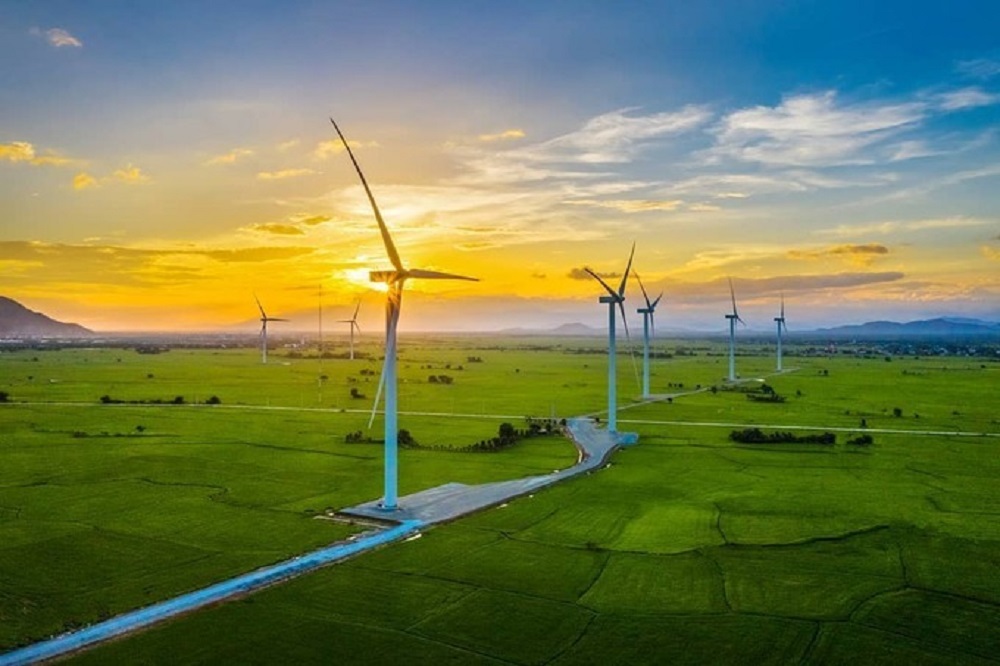Don't confuse the concept of "take over" energy projects!
Put all available resources and enthusiasm into developing energy projects, but when you can not stand to keep the project and sell it impotently, do not think someone is taking you over!

Mrs. Hong Kim Vi – Deputy General Director of Public Relations, Super Energy Group (Thailand Energy Group)
>> A policy boost is expected for renewable power
Mrs. Hong Kim Vi, Deputy General Director of Public Relations, Super Energy Group (Thailand Energy Group), told Business Forum Magazine about this. According to Mrs. Vi, there is currently a trend of mergers and acquisitions in the market for renewable energy projects. Specifically, instead of investing in implementing new projects, they will participate in the market by buying and selling COD projects in Vietnam.
Some comments that large FDI enterprises will acquire Vietnam's renewable energy market are inaccurate. Madam, what is your point of view on this issue? Can you analyze this situation?
This comment lacks accuracy in light of reality. Because in the field of electricity investment in Vietnam, it can be divided into three groups: foreign investors, Vietnamese corporations that can arrange credit with domestic and foreign banks, and corporations that have not yet arranged capital but want to do a project.
For the group of foreign investors, in the period from 2017-2019, they can get foreign capital at a price of about 4-5% (USD), while Vietnamese businesses have to borrow capital from domestic banks with a capital of 11-15% of all costs of capital included. Therefore, domestic investors' capital is pushed much higher than that of foreign enterprises.
Not to mention, Vietnamese corporations and businesses find it difficult to access credit funds because foreign banks do not lend to domestic enterprises due to poor credit scores. Therefore, Vietnamese enterprises will have to ask Vietnamese banks to issue letters of credit guarantee, from which they can apply for foreign loans. However, only a few large enterprises in Vietnam can do that. Most of the remaining enterprises will operate under the general contractor's form.
So investors with small capital will largely depend on general contractors?
That's right, most of the construction projects are conducted by China's general contractors, which allow enterprises to delay payment for 2 to 3 years. Many enterprises often think of a pinky picture when the projects take about two years to complete, and when the State pays, it is also the time to pay for the general contractor.
When the FIT price is not up to date, there is no money to pay the general contractor, forcing them to distrain debts while the enterprise mortgages their projects.That's why the story of countries taking over Vietnam's electricity industry was created. Initially, businesses only have 30% of their capital, and the remaining 70% is used by general contractors. After 2-3 years of having no money to pay the general contractor, enterprises are forced to discharge debts, which is understandable. Therefore, the urgency of the price is very important.
>> Vietnam needs laws for sustainable energy development
Besides, there is an exciting trend in the merger and acquisition market. Instead of researching and investing in new projects in Vietnam, foreign investors from Europe, the US, or many Asian countries will participate in the market by buying and selling COD projects in Vietnam. It is a great opportunity for them when Vietnamese businesses are strapped for cash. If they press the price, they will buy at a very good price instead of investing in new projects and taking risks.

A wind power project
Regarding the above inadequacies, how do you advise on the policy for the renewable energy market in Vietnam?
In terms of wind and solar power projects, they have primarily been deployed in the last three years, from 2019-2020 up until now. However, there has been no new policy for solar power during the previous two years and for wind power for more than one year. Meanwhile, it has been enough for three years for general contractors or credit institutions to squeeze the debts. So who will save domestic businesses? Of course, enterprises have to protect themselves by having to sell a "fledgling and struggling" company because of that. Thereby, the urgency of the policy is very important, especially the competitive price range, to be attractive enough to retain businesses that focus their development investment resources on the renewable energy sector.
>> Vietnam must develop offshore wind power energy
From my experience while working at Super Energy Group, a renewable power project of this group in Thailand with a capacity of 76 MW is paid up to 16 cents, generating 100% of electricity. Or like the price of electricity in Korea, which is also about 9-10 cents.
I am concerned if Vietnam calls for foreign investors, but with current electricity prices in Vietnam. After comparing the opportunity costs of those investments, they will switch to investing in other countries. Indeed, Vietnam will find it challenging to retain the "eagles" - foreign investors.
Therefore, to create a driving force to attract finance and foreign capital to flow into the renewable energy market, Vietnam needs a stable, long-term mechanism and a competitive price policy in the region for Vietnam to retain the big players and achieve sustainable development in this field.
On the other hand, investing in developing Vietnam's renewable energy market will earn a large amount of the country's budget. Investors make money, reinvest in the country, and create jobs for thousands of workers.
To do this, I hope that when calculating the plan, experts can find a solution to make Vietnam's investment environment more attractive to investors, limit ing our money's flow abroad. And about electricity prices, it is necessary to develop a plan to harmonize the interests between the State, enterprises, and electricity users.
Thank you, madam!








